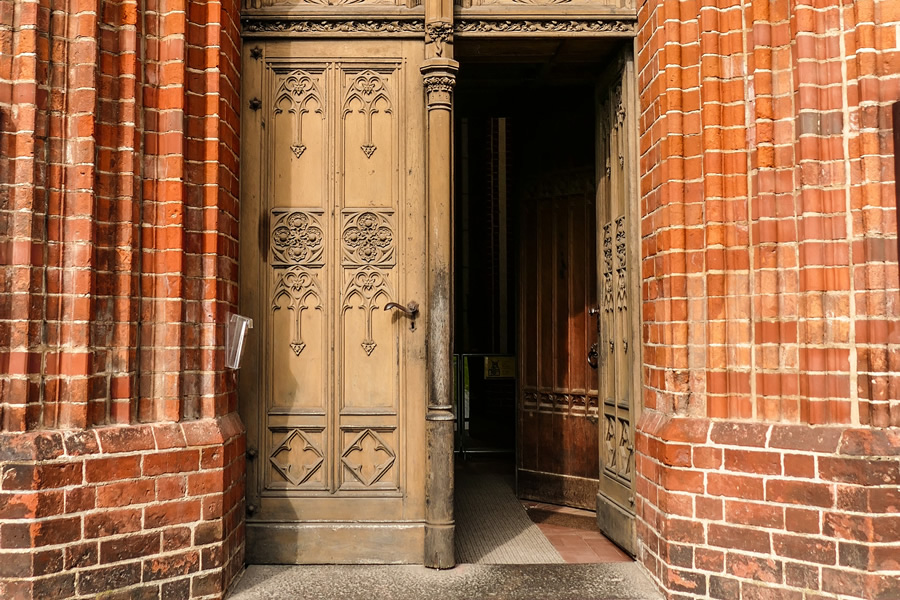
A Story of Great Pain
by Dcn Bob Evans | 09/25/2025 | Pastor's LetterIn the Gospel reading for this Sunday [Luke 16:19-31], we hear the well-known parable of the Rich Man and Lazarus. Most of us know the storyline well, but it's in the details Jesus used to tell the story where we will find the full lesson. The first detail is the name, Lazarus, which is the Greek equivalent of the Hebrew name, Eliezer, meaning "God is my help." This is a clue to interpreting the story.
The next detail is that the poor man was literally lying at the rich man's door. This told Jesus' listeners that there was no excuse for the rich man not knowing about Lazarus; he had to step over him to get in and out of his house. This detail also told them that the rich man ate all alone. Those who might come to dine with him would have to also step over Lazarus, which guests certainly would not do. For a Jew, the ultimate in loneliness was to dine alone.
Jesus was speaking to a crowd of Pharisees who had confronted Him and His disciples in Jericho, the most affluent city in the region. The next detail we note is that Jesus incorporated into the story the Pharisees' explanation of "what happens in the afterlife?" - a great banquet hosted by Abraham for the righteous and endless torment for the unrighteous.
The next detail was that the rich man's brothers were still living in their father's house. Under Mosaic Law, sons were to remain in their father's house until one year after his death. So, this man belonged in his father's house as well. This detail told the listeners that this man was not living up to his obligations as a son, just as the Pharisees were not living up to their obligations as "sons of Abraham."
This parable is a story of great pain: the pain of misery on the poor man's part; the pain of loneliness and isolation on the rich man's part; all culminating in the rich man's eternal pain of realizing he would never experience the goal of truly righteous Jews. The parable also speaks of the Pharisees' pain. Although they positioned themselves as adversaries of Jesus, He had compassion for them. They could see themselves in the story. The fastidiousness with which they lived resulted in very lonely, joyless and isolated lives. They were socially despised by the people and lived in "their own world," much like the rich man in the story.
In this life, God provides abundance for some that they might share that abundance with others such that the welfare of all is served and mutual support prevails. That's the essential element of sustained human communities. But, when abundance is not shared, it leads to great pain, not just among the have-nots but among the haves, where the pain of loneliness and unhappiness can be crushing in this life, and culminating in even greater pain in the next.
Only a short while after Jesus shared this parable, messengers came with news of the death of Jesus' friend, also named Lazarus. Just as God was the help of the poor man in the parable, God was about to be the help of a rich man in Bethany who shared his abundance with the many afflicted who journeyed to Jerusalem each Passover. The name, Bethany, means "home of the afflicted."
Dcn Bob Evans
BACK TO LIST